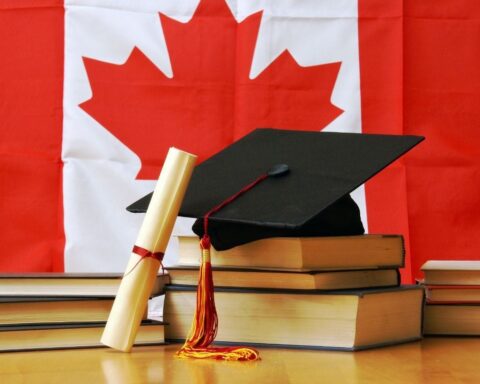On Sept. 5, in one of his cruellest acts yet, US President Donald Trump ended the Deferred Action for Childhood Arrivals (DACA) program. DACA was an immigration policy enacted by the Obama administration that allowed individuals who moved to America illegally as minors to remain in the country, given a certain set of conditions that ensure they make productive contributions to society. If Congress doesn’t find a way to legalize DACA and develop a plan in which DACA participants—affectionately known as “Dreamers”—can apply for US citizenship, upwards of 800,000 individuals face possible deportation to countries they barely know.
While Trump’s actions have led to an emotional outcry both within the US and internationally, at the same time, there exists a rising unwillingness to accept immigrants among Canadians. Under the presumption that an influx of Dreamers will attempt to migrate to Canada, some believe that the Canadian government should have the absolute power to admit only those with high academic or economic abilities. However, Canada’s approach to accepting thousands of Dreamers must reflect the diversity that Canada claims to embrace, and go beyond allowing only those the government subjectively deems as ‘the best.’ As Trump tries to rip these young people from all that they have ever known, Canada—and particularly its universities—has the humanitarian duty to provide a safe place and a legal channel for Dreamers to become citizens.
Though Canadians who oppose the northward immigration of Dreamers argue that it will overwhelm the country’s immigration system, it is incredibly unlikely that all 800,000 individuals in the DACA program will relocate to Canada. In a quote in a Vice article, Ontario Independent Senator Ratna Omidvar suggested that Canada should look to welcome 10,000 to 30,000 Dreamers. Canada, she argues, must capitalize on the opportunity to welcome a new wave of skilled workers, who will help to boost the economy.
Canadian post-secondary institutions should support the aspirations made possible by the DACA program in the first place, by accepting and helping to fund Dreamers’ transitions into Canadian society.
McGill students can surely empathize with the plights of Dreamers, especially those who are in the process of completing university degrees. Dreamers have spent the majority of their lives in the United States, and many have come to hope for the same type of social and financial success that McGill students aspire to. Now, they face the possibility of deportation, compromising their futures. Canadian post-secondary institutions should support the aspirations made possible by the DACA program in the first place, by accepting and helping to fund Dreamers’ transitions into Canadian society.
Huron University College in London, Ont. has already set an important example, offering $60,000 in scholarships to students affected by the overturn of the DACA program. At McGill, compensating for an increased number of transfer applicants when planning classes would allow for more space in programs to accommodate Dreamers. To further ease the transition, McGill students can start groups that lobby the administration to take action and recognize the unique circumstances of Dreamers and work to welcome them into the McGill community. By removing barriers to Dreamers’ enrollment in Canadian universities, Canadians can help to reverse the damage being done by the Trump Administration, and help to give these young adults a third chance at a future. Those who have already dedicated their time and energy into their schooling have a right to finish their education.
Morally, Canadians need to recognize the inherent abuse of power in the argument that the Canadian government should be highly selective in choosing which Dreamers have sufficient test scores or employability, and thus the right to immigrate to Canada. All should have the opportunity to apply and be fairly considered, without the constant paranoia of fitting narrow acceptance criteria. While, opposers of immigration harshly critique prioritizing citizens of other countries over born Canadians, its supporters argue that it is necessary for growth. What critics must recognize is the need for empathy, and to recognize the injustice that will occur if Canada does not provide social and economic opportunities.
Given that none of these individuals have criminal records, nor histories of violence, they deserve the opportunity to continue on their quest to achieve their goals, just like those fortunate enough to be born in Canada. Canada and its universities have the capacity to welcome Dreamers, and as a country that prides itself on compassion and diversity, we have a responsibility to protect the dream that Donald Trump is so desperately trying to crush.
Republished under arrangement with the McGill Tribune.




